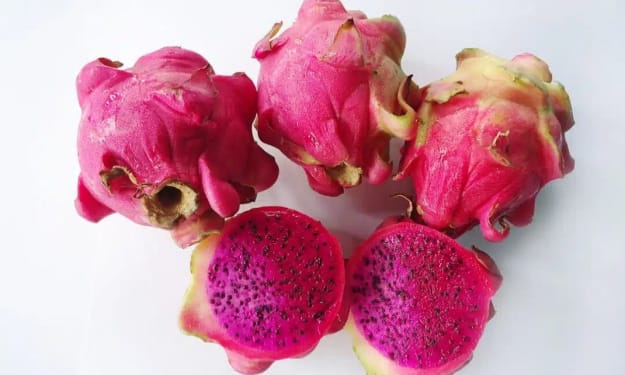5 Best Organic Oil Options For Healthy Cooking
5 Best Organic Oil Options For Healthy Cooking

5 Best Organic Oil Options For Healthy Cooking
When it comes to healthy cooking, using organic oils can be a great choice. They are minimally processed, free from synthetic chemicals, and often retain more of their natural nutrients. Here are five of the best organic oil options for healthy cooking:
Extra Virgin Olive Oil: Extra virgin olive oil is an excellent choice for healthy cooking. It is rich in monounsaturated fats and contains antioxidants that can help reduce inflammation. It is best used for low to medium heat cooking, such as sautéing and light frying.
Coconut Oil: Organic coconut oil is another versatile option for healthy cooking. It is high in medium-chain triglycerides (MCTs), which are easily digested and can provide a quick source of energy. Coconut oil has a high smoke point, making it suitable for various cooking methods, including baking, stir-frying, and sautéing.
Avocado Oil: Avocado oil is a nutritious oil extracted from the flesh of avocados. It is rich in monounsaturated fats, vitamin E, and antioxidants. With a high smoke point, avocado oil is ideal for high-heat cooking methods such as grilling, roasting, and frying.
Flaxseed Oil: Flaxseed oil is derived from flaxseeds and is a great source of omega-3 fatty acids. It has a delicate and nutty flavor, making it suitable for dressings, marinades, and low-heat cooking. However, it is important to note that flaxseed oil should not be heated, as high temperatures can damage its beneficial properties.
Sesame Oil: Organic sesame oil is a flavorful option for cooking, especially in Asian cuisines. It has a nutty taste and contains antioxidants, vitamins, and minerals. Sesame oil has a moderate smoke point, so it is best used for light sautéing, stir-frying, or as a finishing oil for flavor.
Remember, when using oils for cooking, it's important to consider the smoke point, which is the temperature at which an oil starts to break down and produce smoke. Heating an oil above its smoke point can lead to the production of harmful compounds and a loss of its nutritional value.
What are the five healthiest cooking oils?
The healthiest cooking oils are typically those that are high in monounsaturated and polyunsaturated fats, low in saturated fats, and rich in beneficial nutrients. Here are five of the healthiest cooking oils:
Olive Oil: Extra virgin olive oil is widely regarded as one of the healthiest cooking oils. It is rich in monounsaturated fats, which can help reduce inflammation and promote heart health. Olive oil also contains antioxidants and vitamin E. It is best used for low to medium heat cooking.
Avocado Oil: Avocado oil is another healthy option for cooking. It is high in monounsaturated fats and vitamin E. Avocado oil has a high smoke point, making it suitable for high-heat cooking methods such as grilling and roasting.
Canola Oil: Canola oil is derived from the seeds of the canola plant and is low in saturated fats. It is high in monounsaturated fats and contains omega-3 fatty acids. Canola oil has a relatively high smoke point, making it suitable for various cooking methods, including frying and baking.
Walnut Oil: Walnut oil is rich in omega-3 fatty acids and contains antioxidants. It has a delicate nutty flavor and is best used as a finishing oil or in salad dressings, as it has a low smoke point and should not be exposed to high heat.
Flaxseed Oil: Flaxseed oil is a good source of omega-3 fatty acids, specifically alpha-linolenic acid (ALA). It also contains antioxidants. However, it is important to note that flaxseed oil should not be heated, as high temperatures can damage its beneficial properties. It is best used in cold preparations, such as drizzling on salads or adding to smoothies.
It's worth noting that while these oils are considered healthy, they should still be used in moderation as part of a balanced diet. Additionally, individual dietary needs and preferences may vary, so it's a good idea to consult with a healthcare professional or registered dietitian for personalized advice.
What is the best organic oil to cook with?
The best organic oil to cook with depends on various factors such as the cooking method, desired flavor, and smoke point. Here are a few popular organic oils that are commonly used for cooking:
Extra Virgin Olive Oil: Extra virgin olive oil is a versatile and widely recommended option for cooking. It has a rich flavor and is high in monounsaturated fats, which are beneficial for heart health. Extra virgin olive oil has a lower smoke point, so it is best suited for low to medium heat cooking methods like sautéing, stir-frying, and light frying.
Coconut Oil: Organic coconut oil is a popular choice for cooking due to its unique flavor and versatility. It contains medium-chain triglycerides (MCTs) that are easily digestible and can provide quick energy. Coconut oil has a high smoke point, making it suitable for various cooking methods such as baking, stir-frying, and sautéing. It works well in both sweet and savory dishes.
Avocado Oil: Organic avocado oil is another excellent option for cooking. It has a mild flavor and a high smoke point, making it suitable for high-heat cooking methods like grilling, roasting, and frying. Avocado oil is rich in monounsaturated fats and vitamin E, which are beneficial for heart health.
Sesame Oil: Organic sesame oil is commonly used in Asian cuisines and can add a rich, nutty flavor to dishes. It has a moderate smoke point, so it is best used for light sautéing, stir-frying, and as a finishing oil for flavor. Sesame oil is rich in antioxidants and contains beneficial minerals like copper and calcium.
Sunflower Oil: Organic sunflower oil is a neutral-tasting oil that works well for various cooking techniques. It has a high smoke point, making it suitable for high-heat cooking methods like frying and baking. Sunflower oil is rich in vitamin E and low in saturated fats.
It's important to note that the choice of oil may vary depending on personal preferences, dietary needs, and the specific dish you're preparing. Additionally, it's always advisable to use oils in moderation as part of a balanced diet.
What is the healthiest cooking oil that you can cook with it?
The healthiest cooking oil depends on several factors, including the balance of fats, nutrient content, and the specific cooking method. Generally, oils that are high in monounsaturated fats and low in saturated fats are considered healthier options. With that in mind, one of the healthiest cooking oils is:
Extra Virgin Olive Oil: Extra virgin olive oil (EVOO) is widely regarded as one of the healthiest cooking oils available. It is rich in monounsaturated fats, which can help reduce inflammation and promote heart health. EVOO also contains antioxidants and vitamin E. It has been linked to numerous health benefits, including a reduced risk of heart disease, improved cholesterol levels, and better blood sugar control. It is best used for low to medium heat cooking methods like sautéing and light frying.
It's worth noting that while extra virgin olive oil is a healthy option, it's still important to use it in moderation as part of a balanced diet. Additionally, individual dietary needs and preferences may vary, so it's always a good idea to consult with a healthcare professional or registered dietitian for personalized advice.
Which oil is healthy for Indian cooking?
For Indian cooking, there are a few oils commonly used that can be considered healthy options. Here are a few oils that are often used in Indian cuisine and are generally considered healthy:
Mustard Oil: Mustard oil is a traditional oil used in Indian cooking. It is rich in monounsaturated and polyunsaturated fats, which can be beneficial for heart health. Mustard oil has a distinct flavor that adds a unique taste to dishes. It has a relatively high smoke point, making it suitable for various cooking methods, including sautéing, stir-frying, and deep-frying.
Sunflower Oil: Sunflower oil is another commonly used oil in Indian cooking. It is low in saturated fats and high in vitamin E. Sunflower oil has a neutral flavor and a high smoke point, making it suitable for frying, deep-frying, and cooking at high temperatures.
Groundnut (Peanut) Oil: Groundnut oil, also known as peanut oil, is popular in Indian cuisine. It has a high smoke point and is rich in monounsaturated fats. Groundnut oil has a mild flavor and is suitable for frying, deep-frying, and sautéing.
Coconut Oil: Although not as commonly used in all Indian dishes, coconut oil is prevalent in certain regional cuisines. It is high in saturated fats but contains medium-chain triglycerides (MCTs), which are easily digested and provide quick energy. Coconut oil has a distinct flavor and is suitable for sautéing, stir-frying, and tempering in Indian cooking.
It's important to note that while these oils are considered healthy options, moderation is key. It's advisable to use them in moderation as part of a balanced diet that includes a variety of nutritious foods. Additionally, individual dietary needs and preferences may vary, so it's always a good idea to consult with a healthcare professional or registered dietitian for personalized advice.
Which cooking oil is best for health according to Ayurveda?
According to Ayurveda, an ancient system of traditional medicine from India, the choice of cooking oil depends on an individual's dosha or body type. Different oils are believed to have different effects on the doshas. However, there are a few oils commonly recommended in Ayurveda for overall health and balance:
Ghee (Clarified Butter): Ghee is considered a highly revered and beneficial cooking oil in Ayurveda. It is made by simmering butter to remove the milk solids, resulting in a pure fat that is rich in vitamins and fatty acids. Ghee is believed to nourish the body and promote digestion and absorption of nutrients. It is suitable for all dosha types and can be used for various cooking methods, including frying, sautéing, and baking.
Sesame Oil: Sesame oil, especially the unrefined, cold-pressed variety, is highly regarded in Ayurveda. It is considered balancing for all doshas but particularly beneficial for Vata dosha. Sesame oil has a warming effect and is believed to promote strength, improve digestion, and nourish the tissues. It is commonly used in Ayurvedic cooking and is suitable for moderate heat cooking, sautéing, and seasoning.
Coconut Oil: Coconut oil is often recommended in Ayurveda due to its cooling properties. It is believed to balance Pitta dosha and can also be suitable for Vata dosha. Coconut oil is rich in medium-chain fatty acids and is considered nourishing for the body. It has a high smoke point, making it suitable for high-heat cooking methods, such as frying and baking.
Olive Oil: Olive oil, particularly extra virgin olive oil, is not traditionally used in Ayurveda, but it is generally considered a healthy option. It is rich in monounsaturated fats and antioxidants. Olive oil is believed to balance Pitta dosha and can be used in moderate amounts for low to medium heat cooking methods.
It's important to note that Ayurvedic recommendations may vary depending on an individual's specific needs, constitution, and imbalances. It's always advisable to consult with an Ayurvedic practitioner or healthcare professional familiar with Ayurveda for personalized advice.
Which oil is best for heart in India?
In India, several oils are considered beneficial for heart health. Here are a few commonly recommended oils for heart health:
Mustard Oil: Mustard oil is commonly used in Indian cuisine and is considered heart-healthy. It is rich in monounsaturated and polyunsaturated fats, which can help lower bad cholesterol (LDL) levels and increase good cholesterol (HDL) levels. Mustard oil also contains omega-3 fatty acids, which are beneficial for heart health. However, it's important to use mustard oil in moderation due to its high content of erucic acid.
Sunflower Oil: Sunflower oil is another popular cooking oil in India and is known for its heart-healthy properties. It is low in saturated fats and high in polyunsaturated fats, including omega-6 fatty acids. Sunflower oil can help reduce LDL cholesterol levels and promote heart health when used as part of a balanced diet.
Rice Bran Oil: Rice bran oil is gaining popularity in India due to its heart-healthy attributes. It is extracted from the outer layer of rice grains and is rich in monounsaturated fats, polyunsaturated fats, and antioxidants such as vitamin E and oryzanol. Rice bran oil can help lower LDL cholesterol levels and may also have anti-inflammatory properties.
Olive Oil: While not traditionally used in Indian cuisine, olive oil, particularly extra virgin olive oil, is widely recognized for its heart-healthy benefits. It is high in monounsaturated fats and contains antioxidants that help reduce inflammation and protect against heart disease. Olive oil can be used in Indian dishes that benefit from its flavor profile, such as Mediterranean-inspired recipes.
It's important to remember that while these oils are considered heart-healthy, moderation is key. Additionally, it's always a good idea to consult with a healthcare professional or registered dietitian for personalized advice on choosing the best oil for your specific health needs.
About the Creator
Kavya Organic Garden
Passionate about home gardening, plant care, growth, and maintenance. Join me on this exciting journey of organic practices and sustainable gardening! 🌱






Comments
Kavya Organic Garden is not accepting comments at the moment
Want to show your support? Send them a one-off tip.